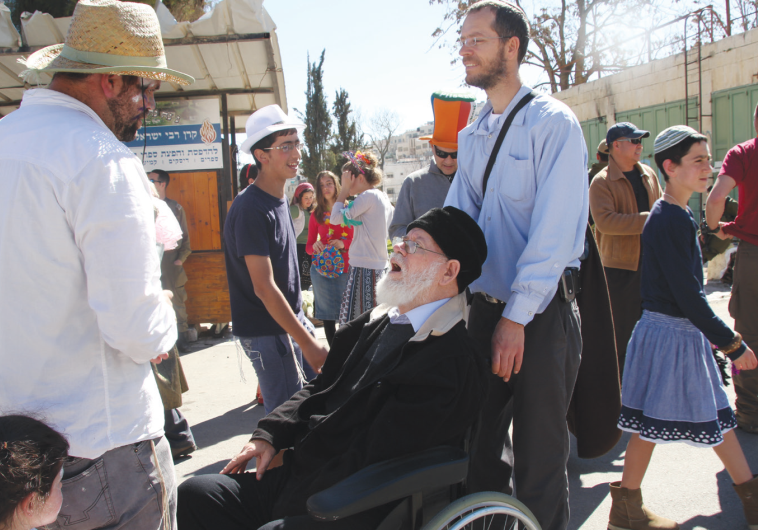Rabbi Moshe Levinger, ideological force behind Jewish settlement in Hebron, dies
Levinger will be buried on Sunday in the Jewish cemetery in Hebron.
 RABBI MOSHE LEVINGER (center) and his son Shlomo tour Hebron for Purim in March.(photo credit: TOVAH LAZAROFF)
RABBI MOSHE LEVINGER (center) and his son Shlomo tour Hebron for Purim in March.(photo credit: TOVAH LAZAROFF)